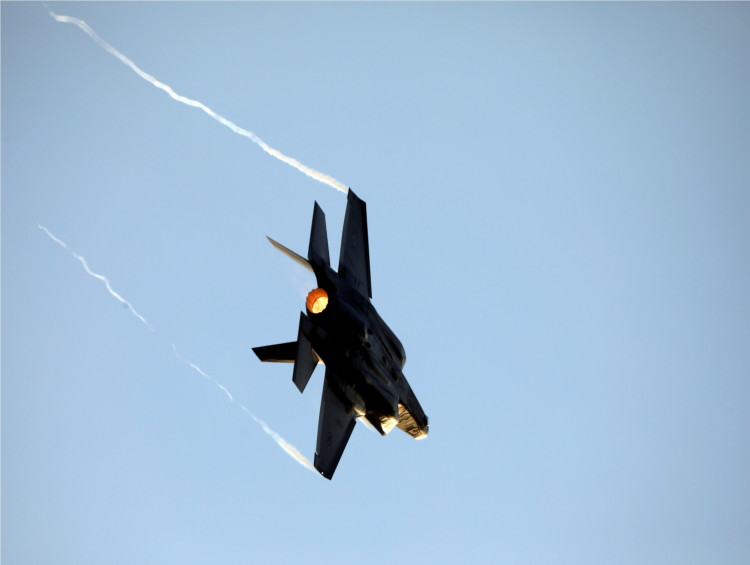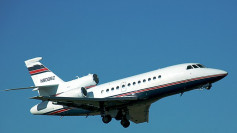The Israeli-Palestinian conflict, which has seen a significant escalation over the past month, continues without a glimpse of peace. On November 13, Israel's First Lady Michal Herzog revealed that her son, a member of the Israeli ground forces, has gone missing in the conflict.
As the conflict shows signs of becoming protracted, Israel's role as a crucial link in the global supply chain and a key player in the Middle East is causing negative impacts on the global economy through trade networks and commodity markets.
Israel's Global Supply Chain Impact: Chips, Fertilizers, Pharmaceuticals
According to the United Nations Commodity Trade Statistics Database, Israel's main exports include electronic components, precious metals, pharmaceuticals, machinery, and chemical products. Industries where Israel has a strong presence, such as semiconductors, potash fertilizers, and pharmaceuticals, are most impactful on the global supply chain.
Israel, home to nearly 200 chip companies and over 30 semiconductor research centers, plays a vital role in the global semiconductor industry. Major chip manufacturers, including Intel, NVIDIA, Apple, Samsung, Google, and Bosch, have production bases or research centers in Israel.
Intel, the largest private-sector employer in Israel with 12,800 employees, has a research center in Haifa and operates a 7-nanometer Fab 28 chip factory in Kiryat Gat, with another 5-nanometer Fab 38 under construction. Additionally, Mobileye, an Israeli autonomous driving company acquired by Intel, is one of the top three suppliers in its sector. Tower Semiconductor, another Intel-acquired Israeli chip foundry, has a monthly capacity of 50,000 wafers and ranks as the world's seventh-largest foundry, focusing on analog and mixed-signal semiconductor components.
In 2022, Intel contributed $8.7 billion in exports to Israel, equivalent to 1.75% of Israel's GDP. Haifa, home to Intel's research center, is just a 40-minute drive from the Lebanese border, where the Israeli Defense Forces have been clashing with Hezbollah since the conflict's escalation. Kiryat Gat, where the Fab 28 factory is located, is only a 30-minute drive from the Gaza Strip.
Mobileye and Tower Semiconductor are crucial to the European automotive industry, with companies like BMW potentially facing production halts in worst-case scenarios.
NVIDIA, which has made significant advances in AI, has established its second-largest global research center outside the United States in Israel. Nearly 3,300 Israeli employees, about 12% of NVIDIA's global workforce, are based there. NVIDIA CEO Jensen Huang mentioned in an internal email that nearly 400 Israeli employees have been called to military service. An NVIDIA employee, Avinatan Or, previously held hostage by Hamas, was confirmed to be among them. The AI summit scheduled to open on October 15 in Tel Aviv was canceled by NVIDIA.
Beyond semiconductors, Israel is a major global exporter of potash fertilizers. The Israel Chemicals Group, with exclusive rights to Dead Sea minerals and Negev Desert phosphate rock, is the world's sixth-largest potash producer and the largest phosphate producer in the Pan-European region.
Israel's national potash fertilizer production capacity is about 4 million tons per year, accounting for 8% of the global market. Including Jordan's Potash Company, the region's capacity of 6.5 million tons per year represents 12% of global production, significantly impacting the global fertilizer market.
Israel is also one of the world's most important generic drug producers, with annual exports nearing $2 billion. Teva Pharmaceutical Industries, based in Israel, is the world's largest generic drug manufacturer.
Rising Global Trade Costs
Despite the Israeli-Palestinian conflict further eroding the already fragile global supply chain, as pointed out by the International Trade Organization's Director-General Ivira, a complete breakdown like that seen during the COVID-19 pandemic is not expected.
On one hand, Israel's smaller economic size limits its global market impact. Even Israel's most important export product, semiconductors, only accounts for 3% of the global chip market share. According to a report by Ben Isaacson, an analyst at Scotiabank, even if the potash export hub of Ashdod is affected, it would only threaten 3% of the global potash supply. S&P Global data shows that Israeli pharmaceuticals account for only 1.1% of U.S. and 0.8% of EU total drug imports.
On the other hand, supply chain restructuring, a political topic in Western countries during the pandemic, has partially buffered the impact of the Israeli-Palestinian conflict. For instance, Israeli suppliers accounted for 14% of the EU's total chip processor imports since 2023, but under the EU Chip Act, companies have increased inventory and diversified supply chains over the past two years. BMW, for example, has shifted its next-generation autonomous driving system partnership to Qualcomm, reducing reliance on Mobileye. For other automotive-grade chips, BMW introduced Inova Semiconductors from Germany and GlobalFoundries with a German factory as new suppliers in late 2021.
The global demand slump caused by supply chain disruptions during the pandemic has also balanced the current supply chain volatility. For example, after the 2022 Russia-Ukraine conflict, the temporary absence of these two major fertilizer producers from the global supply chain caused fertilizer prices to soar, with urea prices even exceeding $1,000 per ton. Affected by price fluctuations, global potash demand fell by 7% that year, with Rabobank predicting a 3% increase this year and not returning to pre-conflict levels until 2025. With the resumption of Russian and Belarusian potash exports, Eastern European capacity has sufficiently filled the gap left by Israel.
However, the fact that the Israeli-Palestinian conflict has not torn apart the global supply chain does not mean it has been unaffected.
Even though Ashdod Port and Tel Aviv's Ben Gurion International Airport have not shut down, the rapid rise in trade costs is unavoidable.
Ashkelon Port, just 10 kilometers from the Gaza Strip border, was attacked by Hamas missiles on October 10. After a brief closure, its throughput has drastically decreased, currently accommodating only about 20 ships. Ashdod Port, more critical, faces challenges of soaring shipping costs.
Israel's coastline has long been designated a high-risk area by insurance companies, requiring additional war risk insurance premiums. Considering the scale and nature of the Israeli-Palestinian conflict escalation, the insurance market expects rates to rise significantly.
Since the conflict's major escalation, the additional insurance premium has increased more than tenfold, reaching about 0.15-0.2% of the ship's value, compared to just 0.0125% earlier this year. Currently, ships docked at Ashdod Port include Panama to Feedermax type container ships and Panama type bulk carriers, with the highest quote estimated at $2,000. Notably, the 40,000-ton m/v ROJEN bulk carrier, also at Ashdod Port, was previously detained by Russian forces at the port of Chernomorsk in Ukraine and later released under the Black Sea Grain Agreement.
Another extreme example is the FPSO ENERGEAN POWER, located 90 kilometers off the coast. Although farther from the Gaza Strip, its strategic importance warrants a high insurance value of up to $1 billion.
Additionally, shipping companies can charge demurrage fees for all containers delayed at ports. While Mediterranean Shipping Company and Maersk have announced the cancellation of demurrage fees until November 8, some transport companies, including Israeli freight company Zim, have begun charging war risk surcharges of $50 to $100 per standard container.
The Stalled Dream of the Indo-European Economic Corridor
Beyond escalating global trade costs, the Israeli-Palestinian conflict is seen as a potential new risk accelerating deglobalization trends. Brendan McKenna, an international economist at Wells Fargo, suggests that the conflict could be another catalyst for deglobalization, although its extent remains uncertain.
McKenna believes that further escalation in the Middle East could lead to greater divisions between the region and other major economies. For instance, the United States' clear support for Israel could deepen divisions with other major powers.
A significant casualty of the conflict in international trade is India.
As one of the main outcomes of India's G20 diplomacy in 2023, India, the United States, the UAE, Saudi Arabia, France, Germany, Italy, and the EU government signed a memorandum of understanding during the G20 in September to establish the Indo-Middle East-Europe Economic Corridor (IMEEC). The corridor aims to promote economic development through enhanced connectivity and economic integration between Asia, the Persian Gulf, and Europe, and is widely seen as a response to China's Belt and Road Initiative.
With the Israeli port of Haifa planned as a key node for Indian products entering Europe, the corridor is also viewed as an attempt to challenge the Suez Canal's trade status.
Indian Prime Minister Modi described IMEEC as "the foundation of world trade for the next century," while Israeli Prime Minister Netanyahu said, "This largest cooperation project in history will change the face of Israel and the Middle East and benefit the whole world."
Considering Saudi Arabia and the UAE are IMEEC member countries, with Israel currently intensifying its offensive in the Gaza Strip, it's highly unlikely these Middle Eastern countries will cooperate with Israel on the project at this time, meaning IMEEC is likely to stall in the short term.
As Mayank Jha, a senior economist at HDFC Bank, said, "Whenever considering projects of this scale, Middle East tensions must be taken into account, and I'm sure it will be delayed and have some impact." NR Bhanumurthy from the BR Ambedkar School of Economics also believes the success of the economic corridor depends on improved relations between Israel and Saudi Arabia, but with escalating conflicts between Tel Aviv and Gaza, the project's future looks grim.






